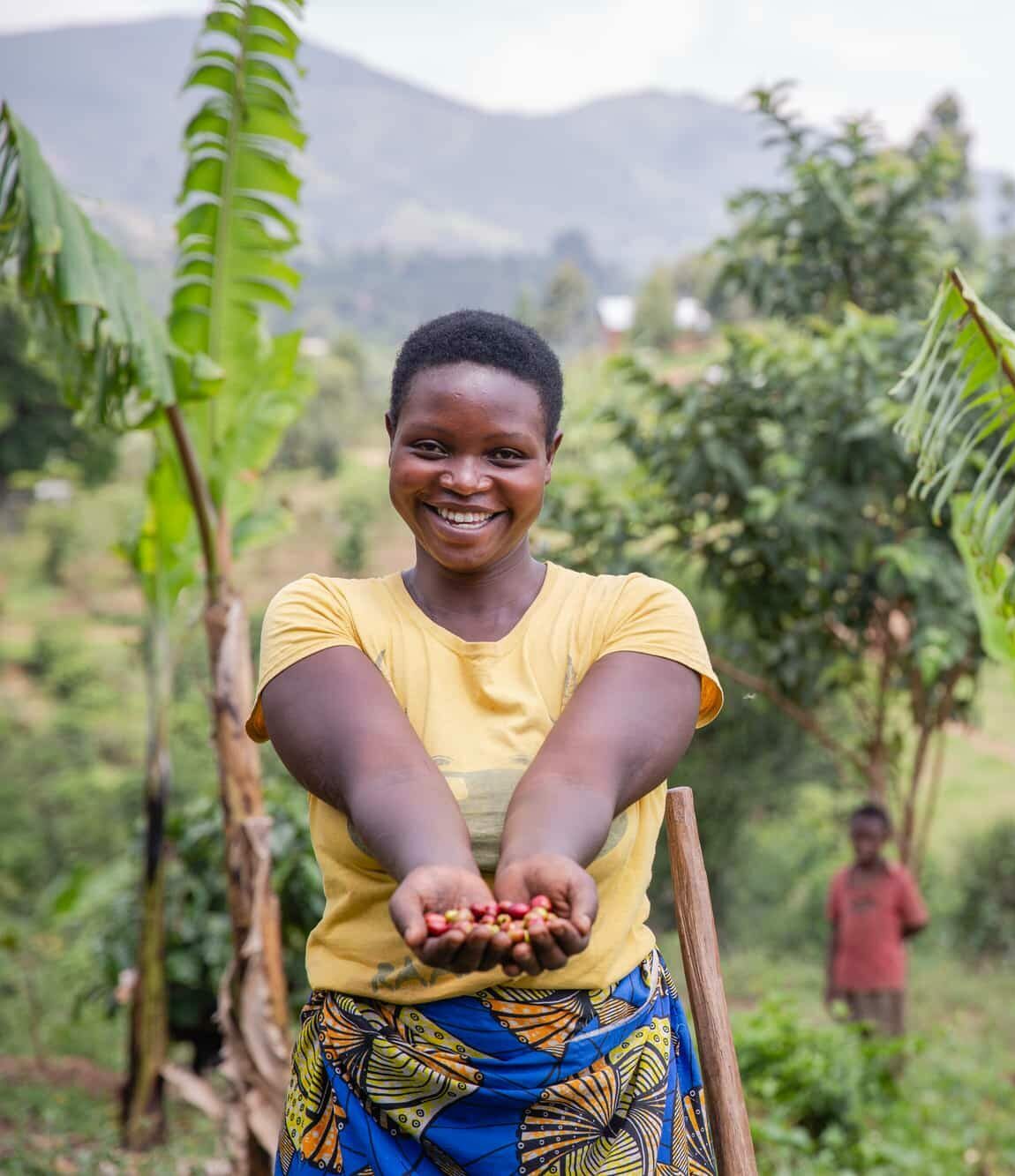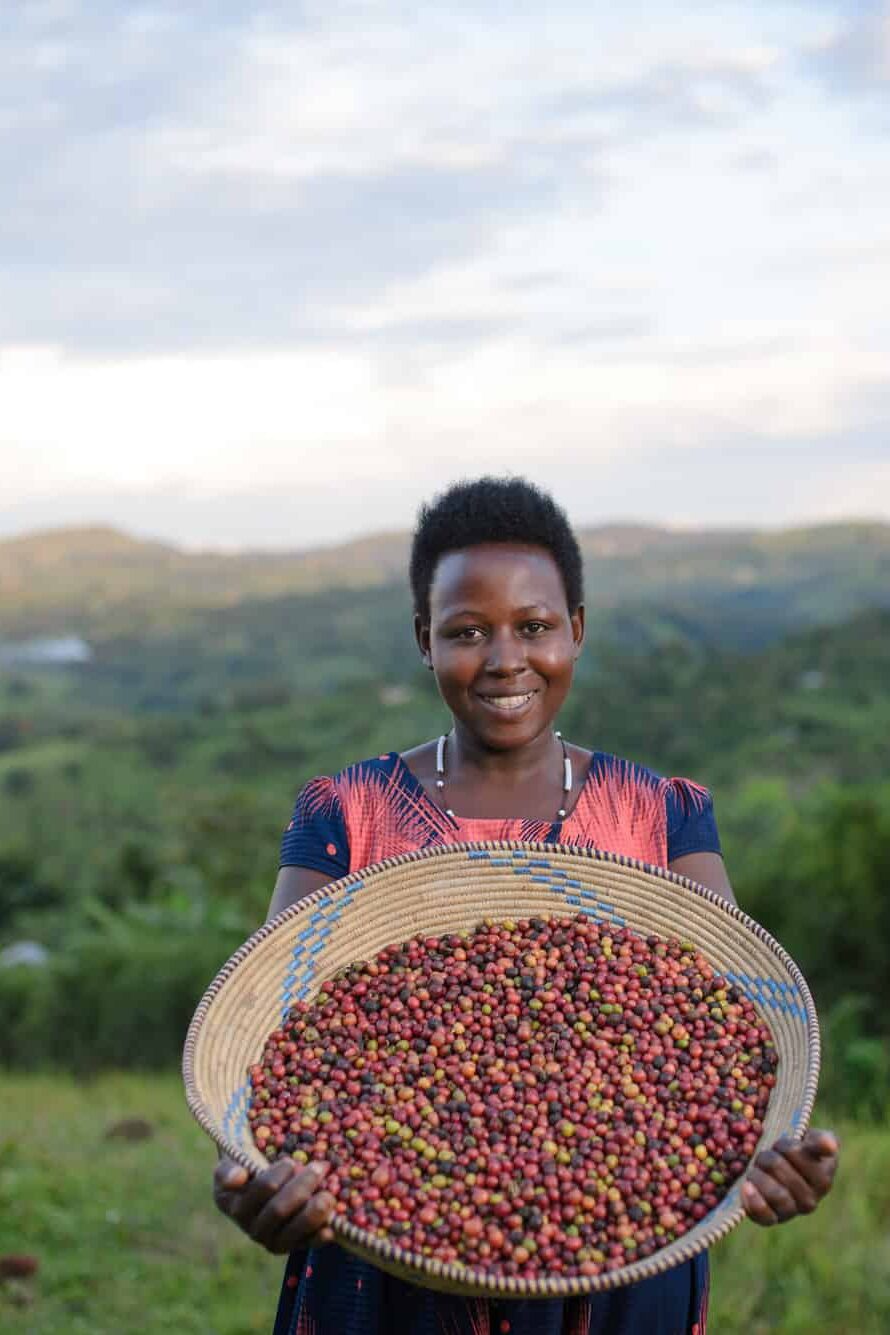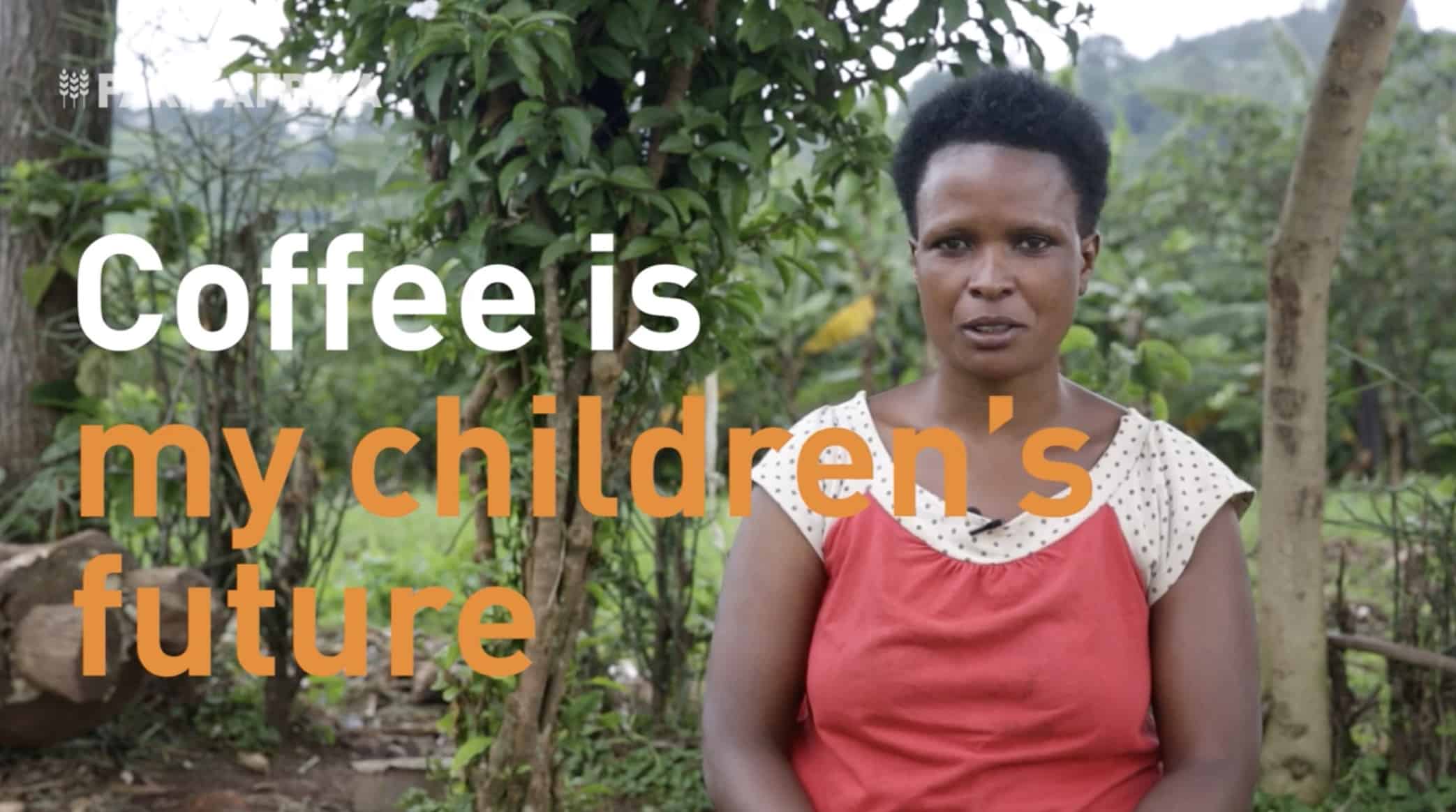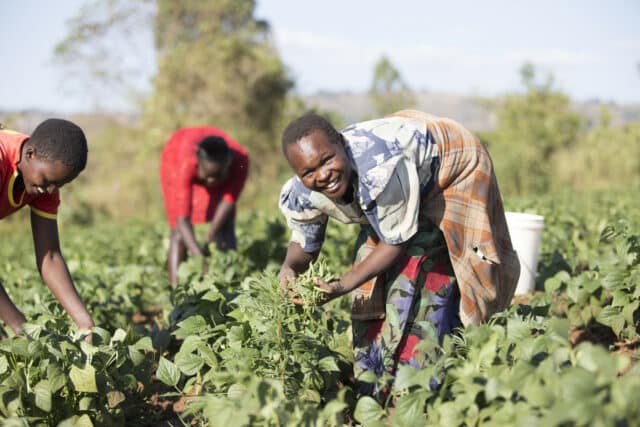Specific expertise
Sustainable coffee production
Many coffee farmers in eastern Africa live in poverty despite the crop’s profit-making potential. Farm Africa works with farmers to realise the potential of the lucrative coffee bean while protecting the local environment.
The simple but lucrative coffee bean is a coveted crop the world over. Yet many coffee farmers in eastern Africa are unable to benefit much from it, with many earning less than a dollar a day.
Many coffee farmers struggle to make ends meet. They lack the tools, training and bargaining power needed to grow enough coffee and sell it for a fair price, while climate change and unpredictable prices add further pressure.
Women are traditionally the most disadvantaged. They do 70% of the work to produce the coffee, but are often excluded from the process of selling it, leaving them with no say in how the income is spent.
What we do
We believe coffee farmers should thrive, not just survive. Farm Africa works with coffee farmers in Ethiopia, the Democratic Republic of the Congo and Uganda, where some of the world’s best coffee is grown.

We work with women in this traditionally male-dominated industry, supporting them to benefit fairly from coffee production.
We support coffee farmers to build routes to profitable markets and grow their own livelihoods. We train by doing, with a two-way discussion that encourages farmers to share their knowledge so whole communities learn new techniques.
Our coffee work in Ethiopia
Ethiopia’s Bale Eco-region is the only place where the unique varieties of Coffee Arabica, the most commonly consumed species of coffee, still exist wild in Afromontane rainforests. But lack of training, infrastructure and good markets mean that very few coffee farmers are able to benefit from its high quality and profit-making potential.
Protection of the natural forest in this region is urgent too, as it’s at risk of being converted into farmland. But when farmers build profitable and sustainable coffee businesses, they don’t need to clear trees to create space for agriculture.
Our coffee projects support farmers to sell to lucrative markets and collect environmental data to allow farmers to capitalise on coffee’s eco-friendly credentials. We are working to create a ‘win-win’ situation whereby coffee farmers in Ethiopia have a sustained economic incentive to protect the forests.
Our coffee work in DR Congo
Extreme weather and armed conflict are just some of the threats facing farming communities around the DR Congo’s Virunga National Park. But this lush, volcanic land is home to some of the world’s finest Arabica coffee and Farm Africa is working with local farmers to realise the coffee’s potential.
Until recently, post-harvest processing of coffee was basic and access to markets was scarce, but Farm Africa joined forces with the Virunga National Park on a project funded by the European Union that strengthened the business of cooperatives and their members to lift people out of poverty.
With a holistic and sustainable approach, the project supported farmers with agricultural training, coffee processing, establishing nurseries for coffee and other trees and obtaining Fairtrade and Organic certifications. The project also focused on building long-term marketing partnerships so cooperatives can operate successfully in international specialty coffee markets and continue business during periods of instability.
Our coffee work in Uganda
Women may be the backbone of the coffee industry in western Uganda, which fuels the local economy, but typically men control the profits. We worked to close the gender gap in Uganda’s coffee industry by providing women with more autonomy at the household, farm and cooperative level.
We supported Ugandan women to access markets, participate in cooperatives and take on leadership roles, giving them more say over their own profits.
We also worked with UGACOF to provide opportunities for women and young people as part of a project funded by the European Union, which upgraded western Uganda’s under-invested Arabica coffee value chain.
Sign up for updates
Subscribe to our newsletter to stay up to date with our latest news and projects.
Resources
Country
Uganda
Key focus areas
Empower women
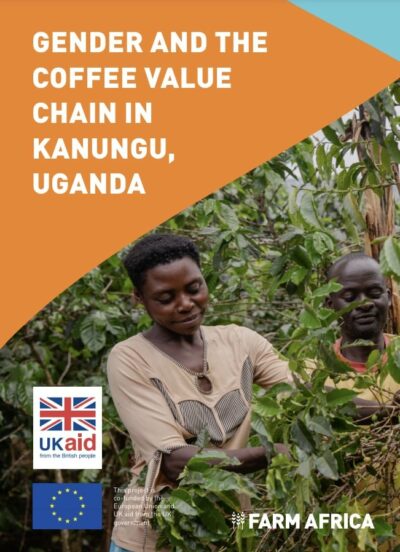
Country
Uganda
Key focus areas
Empower women
Country
Uganda
Key focus areas
Boost productivity
Connect farmers to markets
Empower women
Women’s economic empowerment in the coffee value chain in Kanungu district, Uganda
In September 2019, Farm Africa launched a project in Kanungu district aimed at empowering women in the coffee value chain. The project worked with communities to increase the incomes of 2,640 women coffee producers, strengthen their household decision-making power and increase access to resources, enhance the capacity of CGCs to ensure women can leverage market opportunities while also engaging local stakeholders to recognise and reward women’s participation within the coffee value chain.
Download (5.91mb)
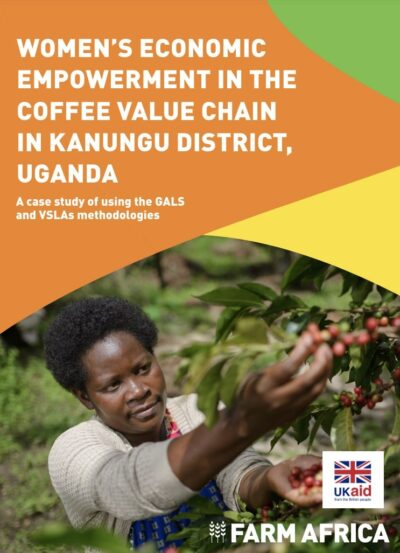
Country
Uganda
Key focus areas
Boost productivity
Connect farmers to markets
Empower women
Country
Uganda
Key focus areas
Protect ecosystems
Strengthen food systems
Sustainable coffee production in Kanungu, Uganda
Factsheet on sustainable coffee production in Kanungu, Uganda, which explores how by working in a sustainable way, smallholder farmers can generate good yields of high-quality coffee that fetch a good price for many generations to come. Farm Africa’s coffee project in Kanungu was co-funded by the European Union.
Download (2mb)

Country
Uganda
Key focus areas
Protect ecosystems
Strengthen food systems
Country
DR Congo
Key focus areas
Connect farmers to markets
Protect ecosystems
Strengthen food systems
Virunga National Park Coffees
Farm Africa is working with the Virunga National Park to unleash the potential of two coffee cooperatives and boost the livelihoods of over 7,000 coffee farming families living on the border of Virunga National Park, reducing pressure on the park’s resources and lifting people out of poverty.
Download (3.67mb)

Country
DR Congo
Key focus areas
Connect farmers to markets
Protect ecosystems
Strengthen food systems
